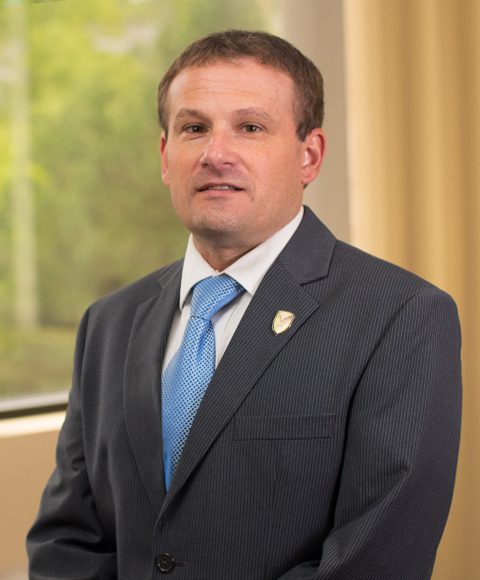![]() WASHINGTON – The Army reprimanded a retired four-star general accused of groping the wife of a subordinate officer 25 years ago, signaling the service’s willingness to police the behavior of its most senior officers long after retirement.
WASHINGTON – The Army reprimanded a retired four-star general accused of groping the wife of a subordinate officer 25 years ago, signaling the service’s willingness to police the behavior of its most senior officers long after retirement.
The action raises questions about proof and appropriate punishment in such cases.
The case involves retired Gen. Leon Salomon, who was the four-star chief of Army Materiel Command, the service’s logistics operation from 1994 to 1996. Salomon is accused of grabbing the breasts of Camilla Vance Shadley, according to documents and interviews.
What happened on a sunny Sunday in October 1994 amid a swirl of guests at a cocktail party is viewed through a post-#MeToo lens and years of scandals with senior officers and the military’s problems with sexual harassment and assault.
Salomon, 83, was investigated for alleged indecent assault, a crime punishable under military law. The statute of limitations prevented criminal prosecution.
The Army found probable cause that Salomon committed the offense. The Army issued Salomon a letter of reprimand May 1 and placed it in his official file May 23 after he declined to rebut it, according to Army documents.
“The actual indecent assault was incredibly insulting and annoying,” Vance Shadley said in an interview with USA TODAY. “And it is absolutely nothing compared with the sexual violence I’ve seen as a nurse committed against others. But the underlying consistency is the damage it does to survivors and their families.”
Salomon could not be reached for comment through the Army or his military lawyer. He did not respond to a request for an interview through a professional association to which he belongs.
“We take all sexual assault allegations seriously,” Cynthia Smith, an Army spokeswoman, said in a statement Wednesday. “Gen. Salomon was reprimanded following the completion of a formal investigation. Appropriate action was taken.”
Vance Shadley said she decided to come forward with her story last year. She had accompanied her husband, retired Maj. Gen. Robert Shadley, during talks he gave at military posts about the corrosive effects of sexual harassment and assault.
In October 1994, Vance and her then-husband, Brig. Gen. William Holmes, lived on Fort Belvoir, Virginia, in suburban Washington. Their home was a few doors down from Quarters One, the home of Salomon, Holmes’ boss, according to a statement she filed with Army criminal investigators last fall.
Salomon hosted a cocktail party. Holmes, Vance and her identical twin sister, Grace, walked over. The three split up and said hello to friends when Vance approached Salomon.
“General Salomon was a jovial, loud guy,” Vance Shadley wrote in her statement. “He was also a big guy. He is very tall and I am not. When he opened his arms wide, I remember looking at his face and seeing a smile. Instead of feeling his arms around me, I felt the curve of his hands on my breasts. I was shocked when I felt that both of his hands were placed on my breasts. I froze. I was completely stunned, surprised, confused.”
Salomon kept smiling, she wrote, but said nothing as partygoers milled about them, laughing and drinking.
“I remember thinking that I had just been groped by a four-star general in his house and he did not react at all,” she wrote. “He thought he could do anything.”
Salomon had reached the pinnacle of his profession, the Army’s most senior officer responsible for ensuring the readiness of weapons, vehicles and equipment. He retired in 1996.
Grace Vance, Camilla’s identical twin, recalled mingling and meeting Salomon later during the party. The sisters are daughters of Cyrus Vance, former secretary of the Army and State Department.
“At the end of our conversation, he smiled and said to me, ‘Your boobs are bigger than Camilla’s,’ ” Grace wrote in her statement to Army investigators.
Shocked and upset, Grace found her sister and Holmes, told them what happened, and they left the party.
The wife of a retired two-star general, whose names are redacted in the report, told Army investigators that Salomon had never made comments that made her feel uncomfortable, nor did she witness the alleged assault. She described Salomon as “a very assertive person with a ‘big personality’ who always wanted to get the last word in.”
Assaults in the military on the rise
Complaining at the time would have torpedoed Holmes’ career, Vance Shadley, 68, said in the interview with USA TODAY. Nor did she or Holmes expect their complaint against Salomon to be taken seriously in 1994.
“Oh my God, what he did was calculated, deliberate,” Vance Shadley said. “If Salomon could do this on his own turf as a four-star, the only person who would be destroyed was Bill.”
Holmes died in 2016, suffering from dementia. In 2018, Camilla Vance, a nurse who counseled sexual assault victims, married Shadley. Shadley, 76, commanded the Army’s Aberdeen, Maryland, training base when a scandal erupted there in 1996 in which young trainees were coerced into having sex with instructors.
Since then, the Pentagon has seen several senior officers disciplined for ethical violations, many for sexual misconduct. This year, the Pentagon announced sexual assaults at its military academies increased almost 50% last year and assaults throughout the ranks jumped 38%.
Over the past year, Vance Shadley accompanied Shadley as he spoke to military and civilian audiences. After a session at Fort Bragg, North Carolina, the couple decided it was time to acknowledge the alleged incident without naming Salomon and to file a formal complaint with the Army. They divulged the incident, naming Salomon at a recent session in Alabama, Shadley said.
Shadley has made dozens of three-hour presentations for the military at its school to train those who respond to sexual assault complaints and does not charge a fee, he said. The government pays for travel and meals. When he speaks at military bases, Shadley is usually paid an honorarium of $1,000 to $2,500. Vance Shadley pays her own way, he said.
Fair investigation, proper punishment?
The Army has a range of discipline it can mete out in cases when prosecution is ruled out by the statute of limitations, said Greg Rinckey, a former Army lawyer and founding partner of the Tully Rinckey law firm.
Actions can range from a letter reprimanding the offender to recalling the retired officer to active duty, holding a hearing and stripping him or her in rank. A reduction in rank could reduce the officer’s pension.
Rinckey questioned the propriety of investigating and acting on claims made three decades ago. Memories fade, and witnesses who could speak on behalf of Salomon may have forgotten the long-ago party or have died, he said.
“At his age, how is he going to be able to put on a defense?” Rinckey asked.





